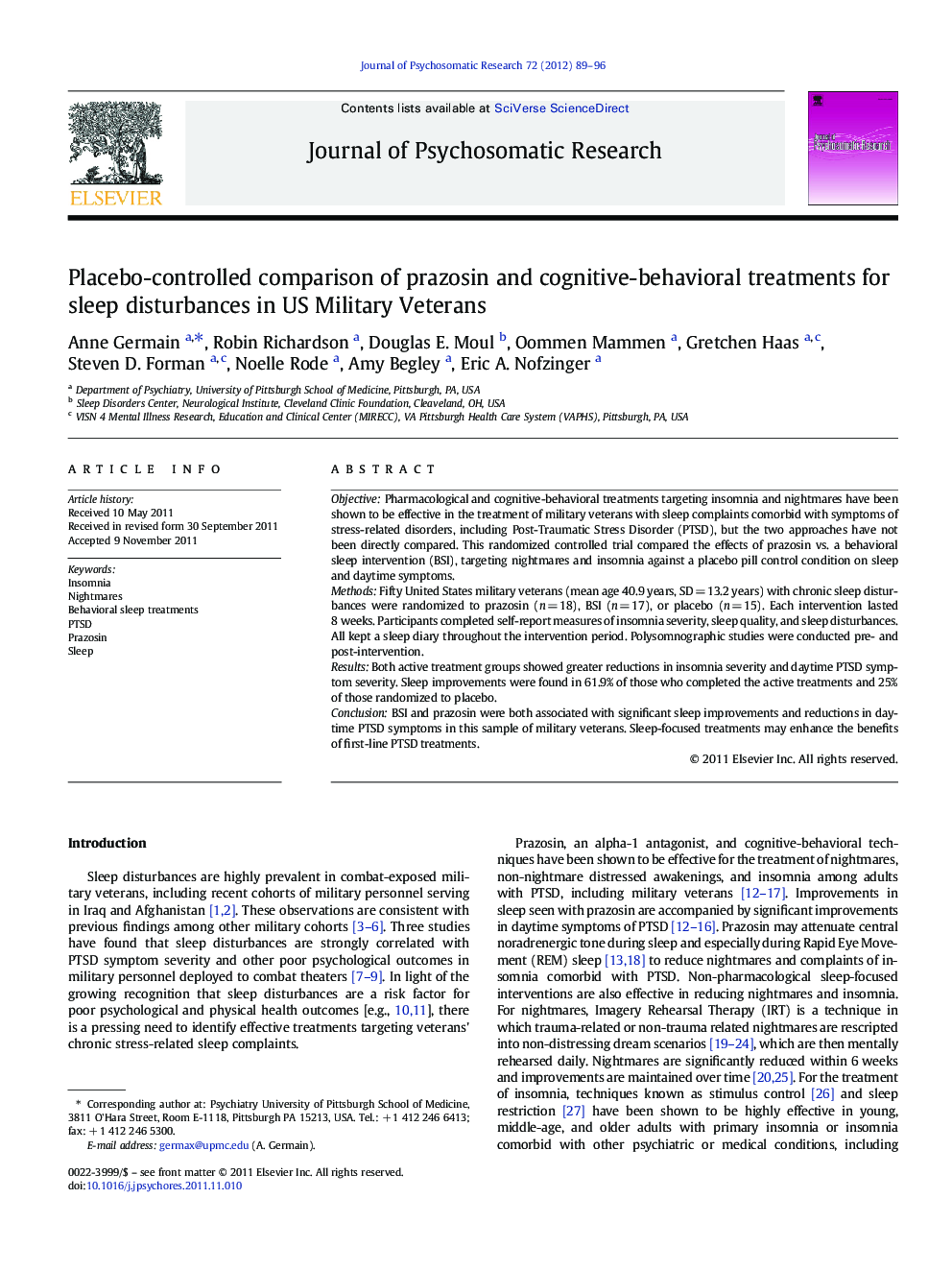| Article ID | Journal | Published Year | Pages | File Type |
|---|---|---|---|---|
| 949731 | Journal of Psychosomatic Research | 2012 | 8 Pages |
ObjectivePharmacological and cognitive-behavioral treatments targeting insomnia and nightmares have been shown to be effective in the treatment of military veterans with sleep complaints comorbid with symptoms of stress-related disorders, including Post-Traumatic Stress Disorder (PTSD), but the two approaches have not been directly compared. This randomized controlled trial compared the effects of prazosin vs. a behavioral sleep intervention (BSI), targeting nightmares and insomnia against a placebo pill control condition on sleep and daytime symptoms.MethodsFifty United States military veterans (mean age 40.9 years, SD = 13.2 years) with chronic sleep disturbances were randomized to prazosin (n = 18), BSI (n = 17), or placebo (n = 15). Each intervention lasted 8 weeks. Participants completed self-report measures of insomnia severity, sleep quality, and sleep disturbances. All kept a sleep diary throughout the intervention period. Polysomnographic studies were conducted pre- and post-intervention.ResultsBoth active treatment groups showed greater reductions in insomnia severity and daytime PTSD symptom severity. Sleep improvements were found in 61.9% of those who completed the active treatments and 25% of those randomized to placebo.ConclusionBSI and prazosin were both associated with significant sleep improvements and reductions in daytime PTSD symptoms in this sample of military veterans. Sleep-focused treatments may enhance the benefits of first-line PTSD treatments.
